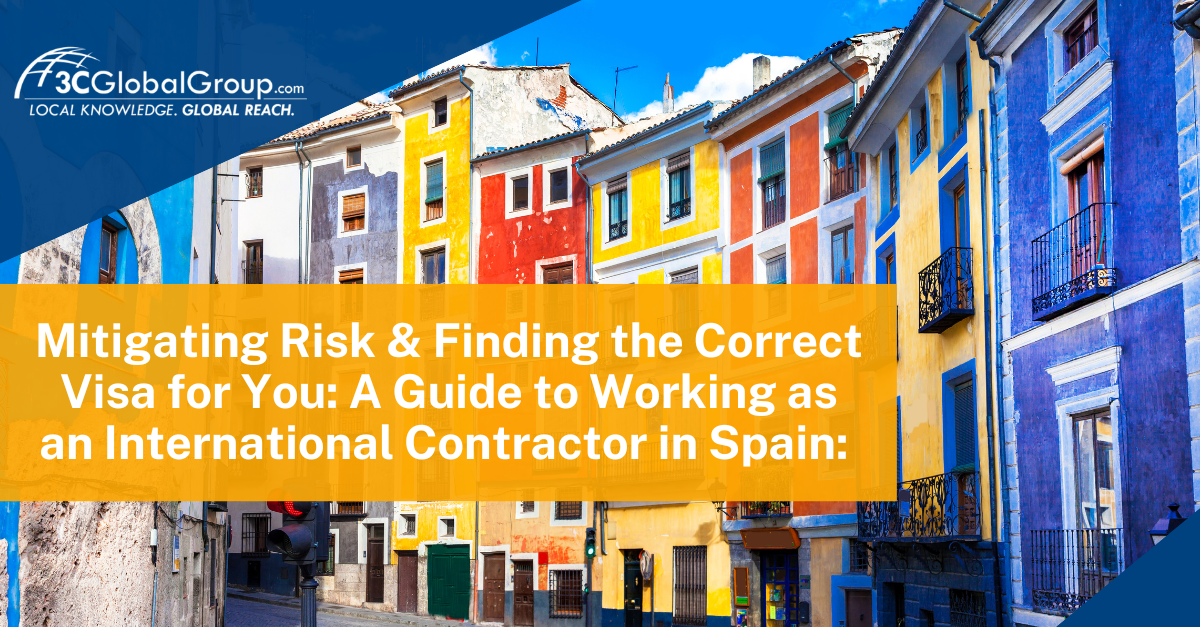
Located in the southwestern Mediterranean, Spain is an excellent destination for those seeking a better work-life balance and a warm climate. Therefore, it is unsurprising that Spain is a popular country among international contractors, freelancers, digital nomads, and remote workers. This article will examine the key factors one should consider before pursuing an international contracting career in Spain.
Permits and visa requirements:
First and foremost, those from countries outside of the EU should apply for a residence permit to reside in Spain. Currently, Spain offers two categories of residence permits; these are as follows:
- Permanent residence permit: This option enables its holder to reside in Spain permanently. However, to obtain it, one must have lived in Spain for at least five years on a work/residence permit/authorisation.
- Temporary Residence Permit: This option enables its holder to reside in Spain for a period ranging between 90 days and five years. Depending on one's visa, the permit must be renewed every one to two years by the applicant; after five years, one can apply for a permanent residence permit.
The temporary residence permit is issued to non-EU citizens who meet the eligibility requirements and qualify to enter on one of the following visas.
- Digital Nomad Visa
- Freelance Visa
- Work Visa
- Non-Lucrative Visa
- Student Visa
- Entrepreneur Visa
- Golden Visa
Important considerations:
- Getting Paid: For international contractors, getting paid on time is paramount. Many factors should be considered to help ensure this and achieve full compliance with international and Spanish tax laws. In a recent article, we examined the key factors one should consider to get paid and achieve tax compliance as an international contractor or freelance professional living in Spain. Check out our article here.
- Compliance: Compliance is always crucial. Once one arrives in Spain, one should also apply for their Tax Identification Number (NIE), register at their local Municipal Registry, and apply for their foreign Identity Number (NIE). These steps are crucial to compliance with Spanish law.
- Mitigate risk: Freelance professionals and self-employed contractors should continuously work to mitigate risk where possible. When working with clients, a best practice for freelancers and self-employed contractors is to ensure that they sign agreements with their clients to help mitigate unnecessary risk. Additionally, contractors should ensure they acquire the appropriate insurance for their business needs, such as liability insurance, whether they find it themselves or sort their insurance through an Agent of Record (AOR). At 3C Global Group, we help our clients find the best insurance coverage when working internationally. We also provide a range of services to international contractors, freelancers, recruiters, and digital nomads. Our team is on hand to provide our clients with comprehensive advice through our AOR services.
In conclusion:
Spain can be an exciting location for those seeking a career as an international contractor, freelance professional, or digital nomad. However, it is crucial to ensure that, as an international contractor, you consider all essential factors and successfully apply for a visa that best suits your needs to comply fully with Spanish and international laws.
Whatever your international contracting query, our knowledgeable team at 3C Global Group is on hand to help.
Please do not hesitate to contact us today.
Sign up for our newsletter via the link here for the latest industry insights and company news.


